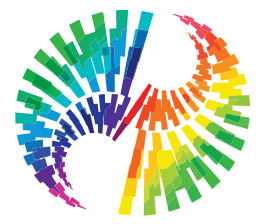PREVENTION OF POLLUTION BY COVID-19 IN THE NEIGHBORHOODS OF THE CABULA-BEIRU SANITARY DISTRICT: STRATEGIES OF ACTIONS THAT PROVIDE SOCIAL ISOLATION
Keywords:
COVID-19, Social isolation, Communities, VulnerableAbstract
Introduction: The COVID-19 pandemic has affected all populations in the world, leading to the death of over 1,178,475 people and has infected another 44,888,869 by October 2020. A disproportionate effect caused by Sars-CoV-2 stems from social inequalities. In Brazil, where the pandemic has different effects in the suburbs, favelas and in the interior of the country, it reveals the great difference between social classes. The Cabula-Beirú Sanitary District nº 9 encompasses communities that face these inequalities. Objective: To enable the social isolation of families in the Cabula-Beirú Sanitary District nº 9 through social actions developed by UNEB teachers. Method: A group of four professors invited students, other professors and civil servants to participate in a voluntary extension project, with face-to-face and off-site activities between May and September 2020. Results: There was 25 members joining the group, including teachers, students and technical servers. Most of them chose to act remotely, claiming to belong to a risk group facing the pandemic. Differents donation campaigns through drive thru were developed to collect food, cleaning materials, clothes and shoes, and used oil, in addition to financial donations. Donations in cash (62%) and conducting a drive thru (32%) proved to be effective strategies, as they led 94% of donations. Social networks were essential tools in the development of the project for collecting donations, dissemination and feedback on actions. UNEB's inter-sector and inter-institutional articulations made the project feasible. Conclusion: 165 families were covered, 10.5 tons were distributed in food baskets, cleaning kits and hygiene material, 1,500 masks, 300 units of ecological soap, 150 educational booklets. The project was maintained in an assistencialist nature for 5 months.
Downloads
References
OPAS. Organização Pan-Americana de Saúde [página na internet]. Folha informativa COVID-19 - Escritório da OPAS e da OMS no Brasil [acesso em 30 de outubro de 2020]. Disponível em: https://www.paho.org/pt/covid19.
WHO. World Health Organization [página na internet]. Coronavirus disease (COVID-19) advice for the public. [acesso em 31 de outubro de 2020]. Disponível em: https://www.who.int/emergencies/diseases/novel-coronavirus-2019/advice-for-public
Pires L, Carvalho L, Xavier L. COVID-19 e desigualdade: a distribuição dos fatores de risco no Brasil. COVID-19 e Desigualdade no Brasil. Experiment Findings [revista em Internet]. Abril de 2020; acesso em 30 de outubro de 2020; Disponível em: https://www.researchgate.net/publication/340452851_COVID-19_e_Desigualdade_no_Brasil
Secretaria Municipal De Saúde. Prefeitura Municipal De Salvador. [página na internet]. Área Técnica de Saúde Mental. [acesso em 31 de outubro de 2020]. Disponível em: http://www.eventos.saude.salvador.ba.gov.br/SegundaConferenciaSaudeMental/areatecnica.htm
Castro P. Caridade em tempos de pandemia do COVID-19. Revista Gestão & Tecnologia Faculdade Delta. 2020; 1; 2176-2449.
Moretti S, Guedes-Neta M, Batista E. Nossas vidas em meio à Pandemia da COVID-19: Incertezas e medos sociais. Revista Enfermagem e Saúde Coletiva. 2020; 1; 32-41
WHO. World Health Organization [página na internet]. Advice on the use of masks in the context of COVID-19: interim guidance, 5 June 2020. [acesso em 31 de outubro de 2020]. Disponível em: https://apps.who.int/iris/handle/10665/332293
Garcia D, Souza LM. A sororidade no ciberespaço: laços feministas em militância1 (Sisterhood in cyberspace: feminist ties in militancy). Estudos Linguísticos. 2015; 44; 991-1008.
Vergara M, Cardozo H, Hernández E. Diagnóstico de las organizaciones solidarias del sector artístico-cultural en Córdoba y Sucre. Revista Venezolana de Gerencia (RVG). 2020; 89; 174-188.
Da Silva J, et al. Redes Sociais e Promoção da Saúde: Utilização do Facebook no Contexto da Doação de Sangue. Revista Ibérica de Sistemas e Tecnologias de Informação. 2018; 30; 107-122.
Published
How to Cite
Issue
Section
License
Copyright
Submission of originals to Práticas e Cuidado: Revista de Saúde Coletiva (Practices and Care: Journal of Public Health - PC-RESC) implies the transfer of publication rights by the authors. The copyright for manuscripts published in this journal belongs to the authors, with PC-RESC retaining rights over the first publication. The authors may only use the same results in other publications if they explicitly indicate PC-RESC as the original publication medium.
Creative Commons License
Except where otherwise specified, the terms of a Creative Commons Attribution-ShareAlike 4.0 International License apply to the material published in this journal, which permits unrestricted use, distribution, and reproduction in any medium, provided the original publication is correctly cited.


 This magazine is licensed under a License
This magazine is licensed under a License 